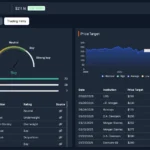
The distinction between blogs and social media platforms can be confusing, especially as both serve as vital tools for online communication and content sharing. In this article, we’ll explore the differences and similarities between blogs and social media, helping you understand whether a blog can be considered part of social media.
What is a Blog?
A blog is a website or section of a website that is regularly updated with content, typically written in an informal or conversational style. Blogs often serve as a platform for sharing opinions, experiences, and expertise on a wide range of topics, from personal thoughts to professional advice.
- Types of Blogs: Personal, corporate, niche-based, etc.
- Content Style: Long-form articles, posts, reviews, and tutorials.
- Publishing Frequency: Blogs may update daily, weekly, or monthly.
Unlike social media platforms, which are designed for immediate, short-form engagement, blogs provide more in-depth content that allows for longer and detailed discussions.
What is Social Media?
Social media refers to online platforms that allow users to create and share content or engage in social networking. Some of the most popular social media platforms include Facebook, Twitter, Instagram, TikTok, and LinkedIn. These platforms focus on interaction and sharing, often encouraging brief, real-time content like photos, videos, and status updates.
- Types of Social Media: Facebook, Twitter, Instagram, TikTok, LinkedIn.
- Content Style: Short-form content, such as posts, tweets, photos, and videos.
- Engagement: Highly interactive, allowing likes, comments, shares, and direct messaging.
Social media platforms are designed for users to interact, engage, and communicate with others almost instantly, which differs from the often static and less interactive nature of blogs.
Key Differences Between Blogs and Social Media
Blogs and social media have distinct characteristics that set them apart:
- Purpose: A blog typically serves as a platform for long-form content, while social media focuses on real-time interactions and short-form content.
- Interaction: Social media is inherently more interactive with comments, likes, and shares, while blogs are often more one-sided in their content delivery, though they can have comment sections.
- Content Length: Blogs are usually much longer in content length compared to the bite-sized posts on social media platforms.
- Ownership: Blogs are usually owned by the individual or organization creating the content, while social media platforms are controlled by large corporations like Facebook or Twitter.
Can a Blog Be Considered Social Media?
While blogs and social media differ in several ways, they can overlap in certain areas. For example, blogs can integrate social media sharing buttons, allowing readers to share blog posts on their favorite social platforms. Similarly, many bloggers use social media platforms to promote their blog posts, creating a bridge between the two types of media.
However, it would be inaccurate to classify a blog as social media in the traditional sense because:
- Primary Function: A blog is more about content creation and publishing, whereas social media is about engagement, interaction, and real-time communication.
- Monetization and Reach: Social media often leads to viral content with broader reach and immediate engagement, while blogs require consistent SEO and promotion to gain traction.
In essence, while blogs can utilize social media for promotion, they are not inherently part of the social media ecosystem.
The Role of Blogs in the Social Media Era
Blogs still have a significant role in today’s digital landscape. Although social media is often the first point of contact for users, blogs provide a deeper level of content that social media posts cannot match. Many successful brands and influencers utilize both blogs and social media to maximize their reach and engage their audience in different ways.
- Combination of Both: Many businesses use blogs to offer more in-depth information, and social media to promote that content in a more engaging way.
- Building Authority: Blogs allow for the creation of content that positions individuals or businesses as authorities in their field, while social media fosters a more casual, conversational relationship with an audience.
Conclusion: Blogs vs. Social Media
In conclusion, while blogs and social media share some similarities in terms of content creation and distribution, they are fundamentally different tools. Blogs focus on long-form, informative content, while social media revolves around quick interactions and engagement. However, using both together strategically can help maximize reach, authority, and engagement in the digital world.
Understanding these distinctions can help content creators and businesses decide how to best use these platforms to reach their target audience and achieve their goals.

Pallet Wood Sourcing: Ethical and Sustainable Practices

Understanding Cost-Benefit Analysis for Project Feasibility

9 Best Free Stock Analysis Websites in 2025

Accelerating drug discovery through the DEL-ML-CS approach

AI in Marketing Is No Longer a Buzzword — It’s the Strategy

Top Applications of Temperature Sensors in Household Appliances

Discover the Anne K. Kroeger Pool in Piedmont: A Hidden Gem for Swimmers

What Fast-Growing Brands Get Right About 3PL Logistics








